UNHCR seeks $13 million to step up response to South-East Asia boat crisis
This is a summary of what was said by UNHCR spokesperson Melissa Fleming – to whom quoted text may be attributed – at today's press briefing at the Palais des Nations in Geneva.
UNHCR is seeking US$13 million to help with the needs of new boat arrivals in South-East Asia, where thousands of refugees and migrants have been crossing the Bay of Bengal and the Andaman Sea.
The appeal was launched yesterday, and is aimed at beefing up our work to do with protection for the nearly 4,800 people from Myanmar and Bangladesh who have been disembarked from smugglers' boats in the last month. In the latest incident, earlier this week, over 700 people were landed in Myanmar's Rakhine state. They included some 120 women and children who said they had been at sea for at least three months.
With the monsoon season imminent, it's estimated that thousands of people may still be at sea.
UNHCR's appeal follows from last Friday's regional meeting of affected States held in Bangkok. It also reflects elements of a 10-point plan of action proposed by UNHCR, the International Organization for Migration and the UN Office on Drugs and Crime.
The funds will allow UNHCR to step up its response in three main areas: Firstly by helping meet the international protection needs of new boat arrivals, secondly by enhancing information available to people considering the journey, and thirdly by targeting some of the root causes of these movements in source countries.
To date, UNHCR's teams have registered just over 1,000 Rohingya new arrivals in Indonesia. In southern Thailand we have distributed relief supplies and are counselling dozens of new arrivals, while in Malaysia we are scaling up to meet the needs of arrivals once consistent access is provided.
Additional resources are needed to set up mobile multi-functional teams to quickly identify and help people with specific protection needs. Refugees who cannot return home will need assurance that they can stay in host countries temporarily with access to legal work until conditions are conducive for voluntary return or until other solutions are found. Where possible, UNHCR will support livelihood programs within national structures to serve the needs of both refugees and host communities.
The appeal envisages trainings for the region's search-and-rescue officials on international legal principles and protection, and exploration of predictable disembarkation options. UNHCR will also expand its monitoring and reporting on maritime movements to include information campaigns providing factual information to potential travelers about the risks and mistreatment at the hands of smugglers and traffickers.
To reduce incentives for people to undertake these dangerous sea journeys, UNHCR will seek legal alternatives such as programs to transition from refugee to migrant status in host countries in need of temporary migrants.
A key part of the appeal focuses on mobilizing support for humanitarian, human rights and development needs in source countries to address the root causes of movement. UNHCR is ready to work with the governments to address issues of citizenship and documentation of people in Bangladesh and in Myanmar's Rakhine state.
To help resolve the three-year-long internal displacement in Rakhine state, UNHCR is seeking to expand assistance to and monitoring of displaced families who wish to return home or establish new homes.
For more information on this topic, please contact:
- In Bangkok, Vivian Tan on mobile +66 818 270 280
- In Geneva, Babar Baloch on mobile +41 79 557 9106
-

For displaced Venezuelans, regularization is the key to building productive lives
23 Jun 2021 Far-reaching regularization schemes in Colombia and Ecuador are providing a lifeline to Venezuelan refugees and migrants who long to become self-sufficient. -
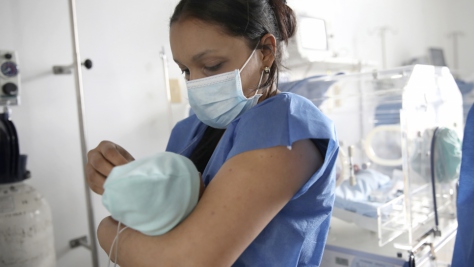
UNHCR warns of vaccine gap risk for world's stateless
22 Jun 2021 -
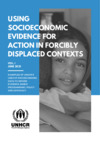
Using Socioeconomic Evidence in Forcibly Displaced Contexts Vol 1 June 2021
22 Jun 2021 This is a compilation of examples of UNHCR's uses of socioeconomic evidence in forcibly displaced contexts. -
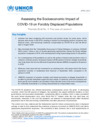
Assessing the Socioeconomic Impact of COVID-19 on Persons of Concern in Lebanon
22 Jun 2021 Based on high-frequency phone surveys conducted by UNHCR, these thematic notes analyses how COVID-19 has impacted PoC populations in a few key countries. -
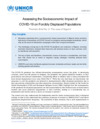
Assessing the Socioeconomic Impact of COVID-19 on Persons of Concern in Nigeria
22 Jun 2021 Based on high-frequency phone surveys conducted by UNHCR, these thematic notes analyses how COVID-19 has impacted PoC populations in a few key countries. -
21st Berlin Conference on Refugee Rights, 21 June 2021, Speech by Assistant High Commissioner for Protection Ms Gillian Triggs
21 Jun 2021 -
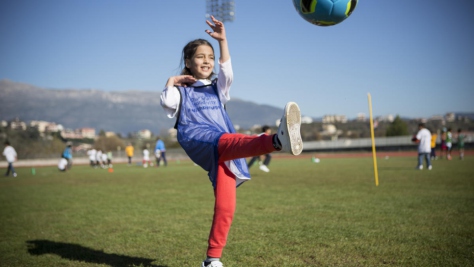
UEFA and UNHCR team up to congratulate UEFA Football and Refugees Grant Scheme winners
21 Jun 2021 On occasion of World Refugee Day UEFA and UNHCR recognise six national associations who have helped refugees integrate into society -
Previous consultations with NGOS
-

Moving forward on the #CleanEnergyChallenge
21 Jun 2021
